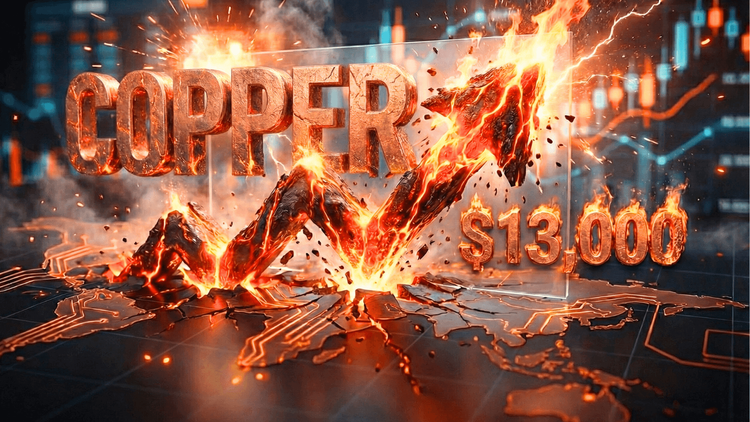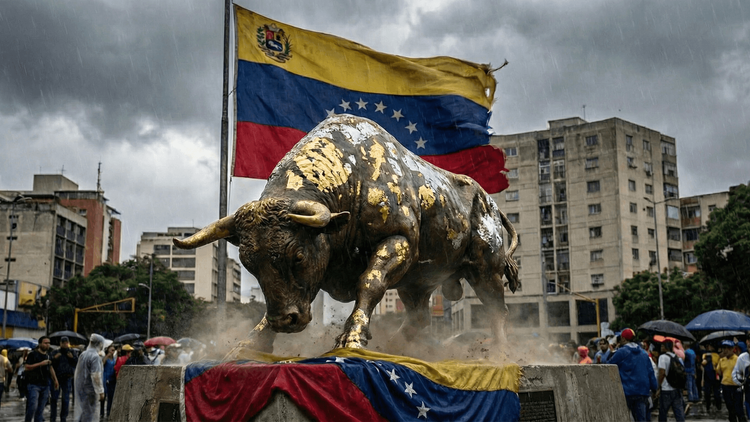Kraken’s Crypto Tentacles Just Grabbed the Stock Market
Kraken blurs the line between crypto and traditional finance with its bold move into zero-commission stock and ETF trading.

Kraken just made its boldest move yet. On April 14, 2025, the San Francisco-based crypto exchange officially began its national rollout of commission-free trading for U.S.-listed stocks and ETFs. It’s a massive pivot—one that brings Kraken head-to-head with giants like Robinhood and Fidelity in the traditional brokerage arena. But unlike its competitors, Kraken isn’t just playing catch-up. It’s bringing crypto DNA into the heart of Wall Street’s domain.
This rollout marks a key inflection point in the convergence of crypto and traditional finance. Kraken users in select U.S. states can now trade over 11,000 stocks and ETFs alongside Bitcoin and Ethereum—all on a single, unified platform. For retail investors, this isn’t just convenient. It’s transformational.
In a statement that reverberated across fintech circles, Kraken co-CEO Arjun Sethi called the move a “natural step,” describing the launch as a bridge toward the tokenization of real-world assets. “The future of trading is borderless, always on, and built on crypto rails,” Sethi declared. That’s not a throwaway line. It’s a declaration of intent—and one that should put legacy brokerages on high alert.
The timing of Kraken’s move is no accident. With U.S. President Donald Trump signaling a return to industry-friendly regulation, crypto firms see a fresh window to expand into mainstream financial markets. Regulatory thaw, investor appetite, and infrastructure maturity have all collided to create the perfect storm for expansion. Kraken isn’t just taking advantage of this moment—it’s leading it.
What separates Kraken from the pack isn’t just its sleek interface or commission-free structure. It’s the architecture behind it. The company is designing its equities platform to sit on top of blockchain-powered systems, effectively laying the groundwork for tokenized stocks. Imagine trading fractional Tesla shares that settle instantly on a decentralized ledger, or accessing U.S. equities 24/7—no NYSE closing bell required.
While some skeptics may scoff at the idea of a crypto exchange morphing into a traditional brokerage, they’re missing the point. Kraken isn’t trying to be Wall Street. It’s trying to replace it. And it’s doing so by offering a new kind of financial experience—one that doesn’t close at 4 p.m., doesn’t charge hidden fees, and doesn’t trap users inside archaic systems.
The rollout doesn’t stop at the U.S. border. Kraken plans to expand stock trading into the UK, Europe, and Australia, signaling global ambitions and a serious challenge to regional platforms. As crypto adoption grows in international markets, Kraken is positioning itself as the default one-stop shop for everything from meme stocks to altcoins.
This isn’t the first time Kraken has made waves outside the crypto pool. Just weeks ago, the company inked a $1.5 billion deal to acquire NinjaTrader, a popular retail futures platform. The acquisition wasn’t just a diversification play—it was a clear signal that Kraken is building the most complete trading ecosystem on the market.
By fusing futures, equities, and crypto under one roof, Kraken is offering a compelling pitch: trade anything, anywhere, anytime. No more toggling between apps. No more fragmented portfolios. Just a streamlined, modern platform for modern investors.
The company is also pushing to become a licensed financial institution, exploring state and national banking charters that would allow it to offer custodial services, lending, and even FDIC-insured accounts. In other words, Kraken wants to be the next-gen financial hub—one that can handle your checking, your stocks, your Bitcoin wallet, and your margin trades.
Arjun Sethi summed it up best when he said, “Crypto isn’t just evolving, it’s becoming the backbone for trading across asset classes.” That’s not hyperbole. It’s the thesis Kraken is betting the house on.
What we’re witnessing here isn’t just a company expanding—it’s an industry redefining itself. For years, crypto lived in a sandbox, playing by its own rules while Wall Street watched from a distance. Now, the sandbox has been bulldozed. The playground is global. And Kraken is standing at the intersection with a flag in the ground.
As Kraken opens the gates to commission-free equities, the broader implications for finance are hard to overstate. It signals a shift toward borderless capital flows, interoperable assets, and decentralized infrastructure. It also forces traditional brokers to rethink their model, adapt to crypto-native competitors, and modernize at warp speed.
Investors now expect more. More transparency. More flexibility. More access. Kraken is delivering all three—and then some. The integration of crypto and traditional assets isn’t a fantasy anymore. It’s here. It’s functional. And it’s growing.
In a world where finance is rapidly decentralizing, Kraken’s move isn’t just savvy—it’s inevitable. The only question now is: who’s next?
Conclusion
Kraken’s launch of commission-free stock and ETF trading isn’t just a feature—it’s a signal. A signal that the walls between crypto and traditional finance are crumbling. With its unified platform, global expansion, and ambitious acquisitions, Kraken is emerging as a serious contender in the next era of investing. Whether Wall Street is ready or not, the future is borderless, always on, and very much crypto-native.






